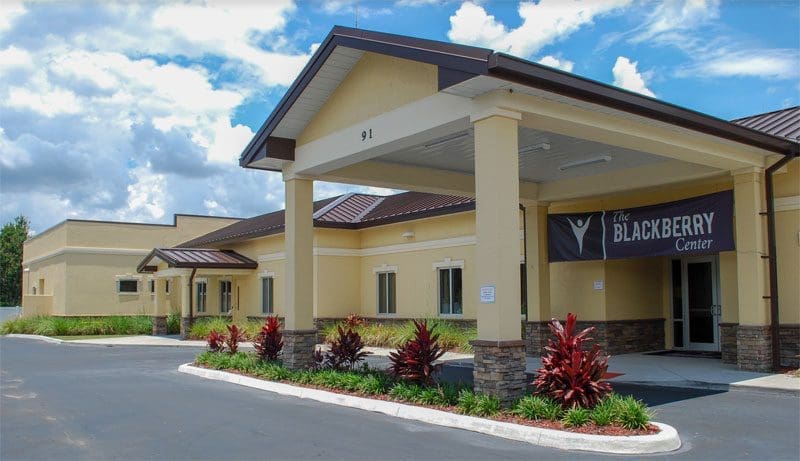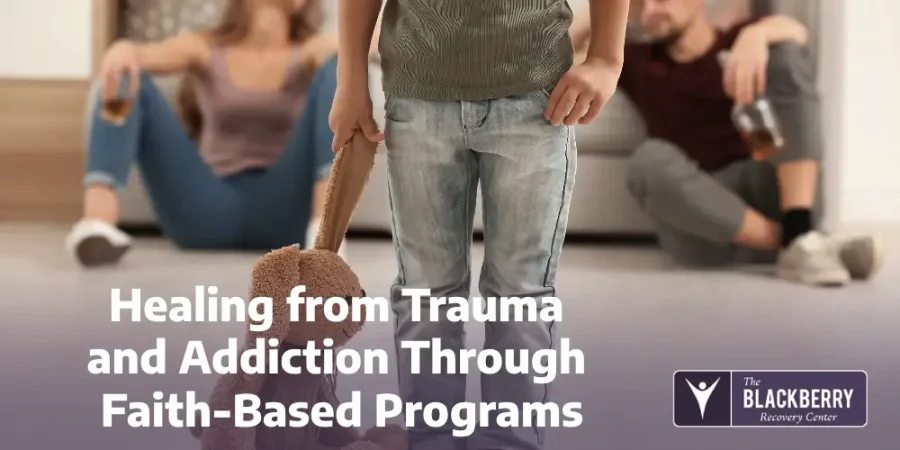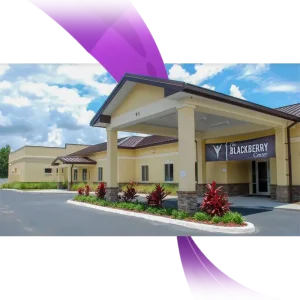A vicious cycle exists between trauma and addiction. Trauma often causes its victims to self-medicate with drugs or alcohol. Oftentimes, this leads to addiction and further trauma. For this reason, it’s essential that rehabilitation treats not only the addiction but the trauma that may have created it in the first place. More and more research is proving the efficacy of faith-based treatment to create lifelong healing from trauma and addiction.
What Does Trauma Look Like?
Trauma can stem from a number of things. Usually, a life-threatening or stressful event creates a range of unpleasant symptoms, including feelings of helplessness and a diminished sense of self. Traumatic experiences include natural disasters, school shootings, accidents, or the death of a loved one.
It’s essential to remember that there’s no one definition of trauma. Active combat, unpleasant childhood experiences, domestic abuse, and sexual assault all affect people in different ways. You can’t paint broad strokes over a victim and expect them to feel one way or another.
What Are The Symptoms of Trauma?
It’s essential to be able to identify some of the symptoms of trauma in yourself or others. They can include:
- Flashbacks
- Repeated and intrusive memories of the event
- Irritability
- Insomnia
- Feeling constantly tense
- Loss of interest in your favorite activities
- Difficulty concentrating
- Frequent upsetting dreams
- Anxiety
- Post-traumatic stress disorder (PTSD)
While this list isn’t exhaustive, be sure to key an eye on these or other related behaviors in trauma survivors.
Addicts and Trauma
Because traumatic events have such extensive repercussions, managing stressors and other negative emotions can be difficult. In addition to that, trauma may not even manifest itself for months or even years after a distressing event. Or, it may disappear only to recur later.

Addicts and Trauma
As a result, there is a strong link between substance use disorders and trauma. Since trauma victims may not have the tools to deal with their underlying negative emotions in a healthy manner, they may turn to quick fixes like alcohol or drugs. In the long term, this only perpetuates the vicious cycle between trauma and addiction. However, faith-based care may be the key to healing from trauma and addiction.
Faith-Based Trauma and Addiction Care
Ultimately, to fully treat substance abuses driven by trauma, both problems must be tackled as co-occurring disorders or a dual diagnosis. Treating one issue without addressing the other will more often than not lead to failure. The goal of trauma-informed addiction treatment is to take a holistic approach that addresses the person as a whole. The right type of care practitioner will understand how trauma and alcohol or drug abuse relate to each other. Their goal is to help you find the right coping mechanisms to overcome your addiction and feel empowered for lifelong recovery.
What Does Faith-Based Healing Look Like?
The primary goal of faith-based addiction treatment is to work towards healing across the body, mind, and spirit. Not only do healthcare professionals assist patients through the detox process, but counselors help them with their mental and emotional problems.

What Does Faith-Based Healing Look Like?
Over 75% of the population identifies as religious. Christian-based recovery can help patients relate to a larger community. In group meetings, as well as in private sessions, patients develop the techniques they need to stay sober. In conjunction with spiritual reflection with other believers, patients may find themselves empowered enough to overcome both addiction and trauma.
Why Choose Faith-Based Treatment?
Addiction treatment that centers around the teachings of Christ is very effective, particularly so for people who have experienced trauma. A recent study by researchers at Baylor University found that religious practices help reduce risky behaviors, including drug and alcohol abuse. Other forms of care include benefits such as supervised detox and counseling, but many people may feel as if something is missing. In some cases, it’s a focus on a higher power and a larger meaning in life.
Victims of trauma benefit particularly from faith-based support. As they work to recover and develop new healthy attitudes and behaviors, faith can be a guiding tool. Even the federal government recognizes the immense value of Christian-based programs. It has awarded grants to over 800 different faith-based substance abuse programs.
Do I Have to be a Christian or a Believer?
Absolutely not! The guiding premise of faith-based rehab facilities is an openness to everyone. Christian rehab centers focus on recovery from a Christian perspective, but that doesn’t mean non-believers can’t find value in them. These programs are perfect for those looking to find a spiritual connection but aren’t exactly sure if they believe in God.
The purpose of these programs is to provide the opportunity of healing from trauma and addiction, as well as an outlet to explore their spirituality. When you choose Christian-based addiction treatment, you are on the path towards long-lasting health and a strong spiritual connection.
We can help you
At The Blackberry Center, you will have the opportunity to begin the journey to lifelong recovery in our state-of-the-art facilities.
If you or one of your loved ones are struggling with addiction, we can help. We use a personalized approach to addiction treatment. Our focus is on treating the disease, not the symptoms. We put our patients first every step of the way.
Our substance abuse-only treatment programs include detox, residential and PHP. Our on-site rehab programs focus on a comprehensive recovery approach. They address your physical, mental and spiritual needs for optimal wellness.
Your needs are unique. We treat you as such.

Reach out for help today
You may be struggling with long-term addiction. Or you may be fighting strong temptations. We can meet you where you are in your fight for sobriety.
We welcome you to our treatment center. From support groups to individual therapy treatment options, we are here to fight the battle with you.
Reach out to us online today. You can also call us at (813) 908-4199.
FAQ
- What is a faith-based addiction recovery program?
Faith-based programs combine traditional addiction treatment with spiritual practices and guidance rooted in religious beliefs to foster healing and recovery. - How does faith help in overcoming trauma and addiction?
Faith provides emotional support, a sense of purpose, and a strong community, which can aid in healing from past traumas and breaking free from addiction. - Are faith-based programs only for individuals with specific religious beliefs?
No, many programs welcome individuals from all faith backgrounds or those exploring spirituality for healing. - What treatments are included in faith-based recovery programs?
Treatments may include counseling, prayer, Bible study, group therapy, and activities promoting spiritual growth alongside evidence-based methods. - Can family members participate in faith-based recovery?
Yes, family involvement is often encouraged to support the individual’s recovery journey and promote collective healing.






